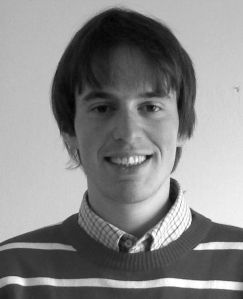This is Vojtěch Pojar’s interview with a Belarusian refugee in his country, Czech Republic. The name Vladislav is used in order to hide the real identity of his interviewee, as he wanted to remain anonymous.
When Vladislav arrived, he greeted me, smiling. “I’m sorry for coming a little late” explained a man in his thirties “but my boss called me and I thought he would talk forever!” – “And where do you work?” I asked – “That’s the reason why my boss had called me” replied Vladislav “he has just fired me.”
To my surprise, Vladislav did not seem really shattered when he said that. I soon found out why.
When he was in Belarus, he led a decent life. He worked as an electrician and he had, as he says, “everything he wanted”. There was a catch, however, which was to have drastic consequences.
In Belarus, all associations of more than two people which have not been recognised by the authorities, are banned. Vladislav is a deeply religious man and used to serve as pastor of the local congregation of Pentecostal church, which is not one of the allowed churches. “Nobody bothers you in Belarus, if you are not meddling in politics. Unfortunately,” says Vladislav “religion is nowadays perceived as a political matter.” The troubles were soon to come. “One day, a beggar came to our meeting. There was nothing suspicious about him. But God sent us signs and within a week, we all knew that the man was from the secret police. Finally, the man stopped showing up at our services. But I soon met him in another costume – in an uniform of a KGB colonel.”
Vladislav was sent to prison twice. He knew that if he was arrested for the third time, he would get a long term sentence. Vladislav and his wife, Maria, bought plane tickets and left Belarus. That was six years ago. When they arrived to the Czech Republic, they were received in a refugee camp. “There were various people from Africa, from the former USSR, from Asia. You have to stay there until you are granted one of the forms of asylum.”
Vladislav and his wife spent there more than two years. He keeps meeting the people he got to know in the refugee camp and he also visits the camp quite often. “When you are applying for asylum, you will hardly escape bureaucracy. My friends kept telling me, the paperwork was something terrible in the Czech Republic and I have the same experience!” There is an organization, OPU, which provides legal help to applicants and “they gave us hand with all the legal problems” says Vladislav.
Even if you are successful as Vladislav and you are allowed to stay, everything is not solved for good. There are two kinds of international protection in the Czech Republic: the asylum and the subsidiary protection. Vladislav and Maria have received the “yellow passport”, which means the latter form. Its holders are somehow disadvantaged: they have to apply for renewal of the permission annually and in case they wanted to apply for asylum which would mean the end of anxiety, they would have to renounce their yellow passport in order to start that procedure, a step too risky to be taken.
When they had left the refugee camp, Vladislav started his own company – he opened a cell phone store. They were doing well for two years, the third year was, however, fatal and they had to close it down.
There is a Czech stereotype that the people from the former Soviet Union earn significantly more money here than in their home country. For Vladislav, this was not the case. He was paid much better in Belarus. In his Czech job – which he has lost now – he had to work for 300 dollars a month (the average salary in the Czech Republic amounts nearly 1200 Dollars). He spends most of his money for paying the rent. In his 3+1 flat, he also preaches and the believers gather there for services.
The interview ends here, although there is a question unanswered, a question which neither of us can answer. Why is it so complicated to accord asylum to people trying to find freedom in our country, to people like Vladislav, who ends the interview saying in fluent Czech: “We eat Czech food at home. I kept saying jokingly that when I got used to dumplings, I would be a real Czech. I love dumplings now…”


Kristina
As soon as I saw the author, I knew it would be a wonderful story! Vojtech, greetings to you! 🙂